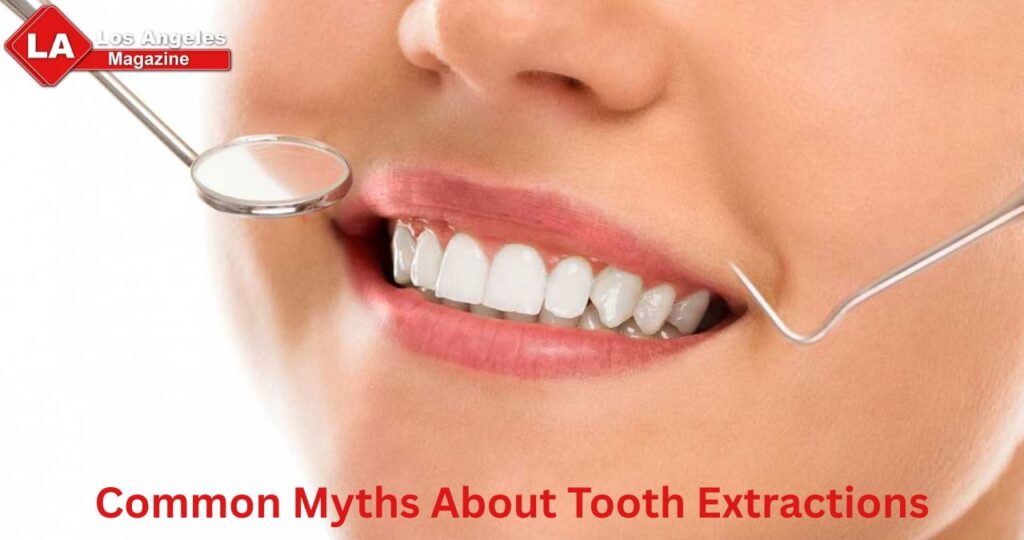Over 10 million teeth get extracted each year According to American Public Health Association. But, despite how widespread extractions of teeth are, there are several misconceptions surrounding the procedure.
The Need for Tooth Extractions
Tooth extractions may be advised for a number of reasons, from orthodontic requirements to serious deterioration. In many situations, extracting a troublesome tooth can enhance general oral health and stop additional issues.
Patients may find relief from chronic pain and discomfort brought on by underlying dental problems following a tooth extraction in Chandler. Sometimes the best course of action to maintain dental health is extractions, regardless of the cause—overcrowding, gum disease, or advanced decay.
Typical Causes of Tooth Extraction
1. Severe decay of the teeth
Cavities in teeth develop when bacteria penetrate a tooth’s inner layers and damage its enamel. The tooth’s structure may be compromised by decay if treatment is not received, making crowns or fillings an impractical option. In these situations, extraction is required to stop the illness from spreading.
2. Severe Gum Disease
Gums and tooth supporting tissues are impacted by periodontal disease. In extreme situations, the illness results in bone loss, which can lead to loose teeth that could need to be extracted in order to stop the oral health from getting worse.
3. Wisdom Teeth Impacted
Third molars, often known as wisdom teeth, frequently erupt incorrectly, resulting in discomfort, infection, and edema. Wisdom teeth that are impacted may need to be extracted due to difficulties with the jaw or damage to neighboring teeth.
4. Orthodontic treatment and overcrowding
To create space for orthodontic therapy, teeth may occasionally need to be pulled. In order to get a healthier and more attractive smile, some teeth must be extracted in order to properly align the remaining ones.
5. Abscesses and Infections of the Teeth
When bacteria get to the tooth’s pulp, an infection or abscess develops, causing excruciating pain and swelling. In order to eradicate the infection and safeguard general health, extraction is necessary if root canal therapy is not a possibility.
6. Injury or Trauma
Serious tooth damage can result from accidents and trauma. Extraction is frequently the best course of action to avoid difficulties when a tooth is irreparably fractured.
7. Potential for Medical Conditions to Cause Complications
Infections may be more common in patients after organ transplants or chemotherapy. Before beginning therapy, dentists may advise extractions to lower the chance of problems.
Are you concerned that you are suffering from a damaged or decayed tooth or need to extract your wisdom teeth? The top dentist idaho falls face these kinds of myths in everyday life, not only them but dentists of the world are now tired of these myths.
Myth #1: Tooth Extractions Are Painful
Many people fear that removing the tooth could cause pain but this isn’t the scenario. Prior to beginning the procedure, your dentist will numb the region to ensure you aren’t in any discomfort. Each extraction will be different however, the process generally is only a couple of minutes.
While you may experience some pain or discomfort following the procedure, it is manageable with a prescription or over-the-counter medications as recommended by your dental professional.
Myth #2: Tooth Extraction Recovery Is A Long Process
In general, the tooth’s socket can take two to three months to heal following a tooth fully is removed. It is likely that you’ll be able to resume regular activities between 48 and 72 hours. It is possible to speed up recovery by following the aftercare guidelines provided by your dental professional.
Myth #3: Everyone Needs Their Wisdom Teeth Pulled
Wisdom tooth extractions are quite frequent but third molars do not have to be removed in all cases. to be extracted. Should your wisdom tooth are erupting without causing any pressure and discomfort to your mouth, your dentist might suggest that you leave them.
The only way you can decide whether you need to have wisdom teeth removed is to arrange a consultation with your dental professional. They will conduct an extensive oral examination that includes X-rays to determine the most effective option to protect the health of your mouth.
Myth #4: Extracting An Infected Or Damaged Tooth Is Always The Best Option
Tooth extractions are typically the last option for treatment choice. In general, it’s always better to save the tooth. In many cases, damaged or a root canal or dental crown can fix damaged teeth. Root canals protect as much of the natural enamel as they can.
Myth #5: Replacing An Extracted Tooth Is Not Necessary
A single tooth missing can cause oral health issues. As an example, the remaining teeth could begin to shift into the vacant space, causing issues with your bite or problems with hygiene. Additionally, with no stimulation from the teeth, your jawbone can start to weaken, which could affect your appearance as well as your ability to speak and chew properly.
Are you concerned about an infected or damaged tooth? If you’ve learned what’s really going on behind popular extraction myths, you shouldn’t be afraid to speak to your dentist to determine if you might benefit from tooth extraction.
Conclusion
The teeth are a support for your jawbone. If your teeth aren’t replaced the jawbone won’t get that stimulation. This could cause your bone to degrade and affect your appearance as well as your capacity to chew and speak properly.
Tooth extractions are among the most commonly used dental procedures caused mostly due to cavities in teeth, meaning that you’re probably going to need one at some time in your life for you dental health.



